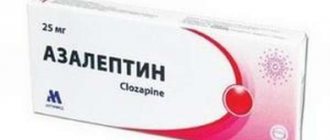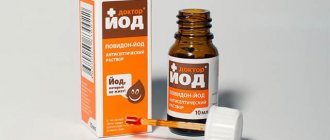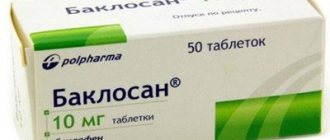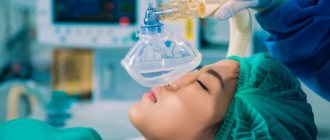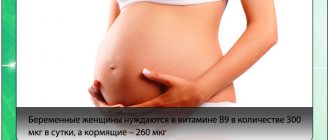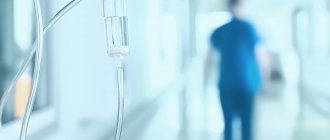Fish oil, or Omega-3, is a polyunsaturated fatty acid preparation necessary for the human body. The additive has a specific taste and smell. Consumption does not bring gastronomic pleasure. The product is a vitamin complex that contains eicosapentaenoic and docosahexaenoic acid. Omega is now available in capsules, which makes taking the vitamin much easier. The mentioned fatty product is a natural biological compound, so an overdose occurs in exceptional cases. But you should not abuse the drug.
Fish oil is an invaluable aid to the body
Biological supplement Fish oil is available in the form of capsules, chewing marmalade, and oily liquid.
All dosage forms include:
- omega-3 – essential acids eicosapentaenoic, docosahexaenoic;
- vitamin A;
- vitamin D
The drug is obtained by processing fatty fish - mackerel, herring, salmon, cod liver. The best quality is found in preparations obtained from red fish meat.
Uses of fish oil:
- reduces the risk of heart disease;
- improves thinking speed;
- increases endurance;
- strengthens the immune system;
- reduces the risk of osteoporosis and joint diseases;
- improves the condition of skin, nails and hair.
The drug is used to prevent hypovitaminosis A and D, it is very useful for brain development.
It is important to take omega-3 norms for pathologies:
- heart and blood vessels;
- diabetes mellitus;
- depression;
- atherosclerosis;
- joint diseases.
The daily requirement of omega-3 is contained in 35 g of walnuts, 120 g of ocean fish or 1 tbsp. l. linseed oil.
What is this product?
Increased interest in this supplement began to appear in the late 70s of the last century. It was then that scientists came to the conclusion that Eskimos and other inhabitants of the Far North, who eat mainly fish, practically do not suffer from cardiovascular diseases. But these health problems arise immediately after foods familiar to residents of other regions appear in their diet.
As a result of long-term observations, scientists came to the conclusion that the reason for maintaining ideal blood cholesterol levels lies in the abundance of fatty fish. After all, it is considered the best source of essential omega-3 acids. Fish oil, the overdose of which will be discussed below, is an amber-colored liquid with a unique composition. It is obtained from herring, mackerel and cod.
Instructions for use
Adults take capsules at a daily dose of 1000 mg, which averages about 30% omega-3. The rest is obtained from food.
In case of extreme deficiency of omega-3 in the diet, the daily dosage is increased to 1500 mg.
READ Iodine overdose
The course of treatment lasts 1 month, which is repeated after a break if necessary.
The daily dose is taken once or divided into 2-4 doses, consumed with meals.
Children from 3 months to 3 years old take fish oil in drops; from 3 years old they can take it in capsules. Children's dosage of drops is:
- up to one year – 2 doses of 3-5 drops per day;
- from 1 year to 2 years – 1 tsp;
- from 2 to 7 years – 2-3 tsp. per day;
- from 7 to 14 years – 1 tbsp. l.
The drug in capsules is taken in a daily dose:
- children 3-6 years old – 100-120 mg;
- children 6-14 years old – 200-250 mg.
Who is this remedy indicated for?
Let us immediately note that fish oil, an overdose of which is dangerous for our health, is both a food supplement and a vitamin-mineral complex. The beneficial properties of this drug are due to its unique composition. It is often recommended for people with weakened immune systems. It is considered the best prevention of rickets. Indicated for those with excessively dry skin on which wounds and ulcers periodically appear. Fish oil is also prescribed to those diagnosed with ophthalmological and dental pathologies, disorders of the endocrine, genitourinary and digestive systems.
In what cases is taking fish oil contraindicated?
You should not take omega-3 if you have hypervitaminosis A and D, sarcoidosis - damage to the lungs, liver, lymph nodes with the formation of granulomas.
Contraindications for taking omega-3 supplements include:
- allergy to fish;
- tuberculosis;
- thyrotoxicosis;
- hypothyroidism;
- stones in the gall bladder, kidneys;
- hemophilia;
- nephritis;
- inflammation of the pancreas;
- exacerbation of cholecystitis;
- stomach ulcer.
You should refrain from using drugs with omega-3 during pregnancy and lactation.
It is dangerous to prescribe omega-3 to children on your own, as the dose may be exceeded. To avoid the risk of overdose, you must follow your doctor’s recommendations and do not take the drug simultaneously with vitamins A, D, E.
READ Ibuprofen overdose
Prevention of intoxication
Preventive measures can be reduced to compliance with the rules for the use of any medicines and their storage. Necessary:
- Purchase and take medications only as prescribed by a doctor or after consultation, strictly in the prescribed dosage. Compliance with the dose is especially important for infants.
- Store medications in specially designated places out of the reach of children.
- Take the product after eating, as this will protect against indigestion and accompanying unpleasant symptoms.
- Carefully study the instructions and recommendations for using the drug.
- Dispose of expired medications in a timely manner, as they can be dangerous.
- If you have allergic reactions, coordinate the prescription and administration of the product with an allergist.
If all recommendations are followed, taking fish oil does not cause unpleasant symptoms and has a beneficial effect on the human body.
Symptoms of fish oil overdose
Exceeding the norm for taking fish oil causes the total manifestation of symptoms of an overdose of all components of the drug - vitamins A, D, E, omega-3 acids.
Signs of a vitamin A overdose include:
- dry mouth;
- ulceration of the oral mucosa, the appearance of blood from the gums;
- double vision;
- diarrhea;
- dizziness;
- confusion;
- irritability.
Signs of excess dosage of omega-3 and vitamin D are:
- thirst;
- metallic taste of food and drink;
- nausea, vomiting;
- decreased muscle tone;
- itching;
- lack of appetite;
- stomach ache;
- instability of mood.
Treatment
In case of severe damage to the body, the patient is taken to the hospital for treatment procedures. Poisoning of mild or moderate severity is treated on an outpatient basis.
The victim requires a special diet. Products with vegetable fat, vitamin D, and high calcium content are excluded from the diet. Fried, canned foods and salty sauces should not be consumed.
Antiemetic drugs are prescribed to normalize gastric motility. This will help stop gagging and eliminate nausea.
Special medical products that increase appetite and support the digestive process - Pancreatin and Creon.
There is no antidote for Omega-3 toxicity.
Children's overdose of omega-3
A one-time excess of the daily dosage of the drug can cause a child to:
- vomiting;
- nausea;
- lack of appetite;
- diarrhea;
- heart rhythm disturbance;
- insomnia;
- weakness.
Long-term use in high dosages creates a risk of blood thinning and internal bleeding. Excess omega-3 in the diet manifests itself:
- delayed physical growth;
- mental retardation;
- increased irritability.
Possible consequences of exceeding the permissible dose
High blood pressure
Long-term intake of fatty acids in high dosages causes the deposition of undigested components in the tissues, which are not excreted from the body naturally. Consequences of the process:
- failure in water-salt balance;
- development of changes in bone structures against the background of increased calcium deposition;
- hypertension (high blood pressure);
- splenomegaly and hepatomegaly (increase in the size of the spleen and liver, respectively);
- hypervitaminosis due to vitamin D;
- increased risk of bleeding due to decreased blood clotting;
- development of liver failure due to partial blocking of functions by blood intoxication;
- the occurrence of allergic reactions;
- development of digestive disorders;
- impaired renal function.
Note! Overdose during pregnancy often causes intrauterine fetal death.
The occurrence of systemic disorders due to exceeding the recommended dosage of drugs based on fatty acids is diagnosed in extreme cases, when a person neglects the side symptoms that have arisen and continues to take the medication.
First aid for overdose
If signs of fat overdose appear, stop taking the drug. If the patient's condition worsens, call an ambulance.
Before the arrival of medical workers, the victim is provided with pre-medical care:
- offer to drink clean water;
- provide bed rest;
- control the position of the head so that vomit does not enter the respiratory tract.
Gastric lavage is performed for children from 3 years of age, if more than 3 hours have not passed after taking the drug and the onset of overdose symptoms. READ Anaferon overdose
Before the drug has time to leave the stomach, in order to cause a gag reflex, give a weak soda solution to drink and press on the root of the tongue.
In the first 20 minutes after taking omega-3 in a large dose, you can drink activated carbon at the rate of 2 tablets per 10 kg of weight.
If you take enterosorbents 3 hours after an overdose, this will not help remove toxins, since they have already left the stomach. It is better to give the victim clean water for dehydration caused by vomiting.
It is necessary to reduce the time spent in direct sunlight and avoid solariums.
The patient is recommended dietary nutrition. Exclude from the diet fatty fish, fried, smoked, too salty, spicy dishes,
Trigger: Bananas
One of the most common headache triggers, according to WebMD, is aged cheese, which contains a substance called tyramine, which is produced when proteins break down.
We recommend reading: Kalgan tincture on moonshine, vodka: how to infuse it, benefits and harms
How to avoid: The Cleveland Clinic recommends avoiding blue cheeses, brie, feta, gorgonzola, Swiss cheese, mozzarella, parmesan, stilton and muenster cheese.
There are several reasons why alcohol can trigger a headache. Preservatives called sulfites have been blamed in the past, but they are more likely to cause allergies or asthma than headaches. However, alcohol increases blood flow to the brain and can lead to dehydration, which can cause headaches, according to information published in EverydayHealth.
These preservatives, which are used in meat processing and in soy sauce and other foods, have been linked to constriction of blood vessels, which can lead to headaches in some people.
How to avoid: If you notice a headache after sushi with soy sauce, stop eating it. At least do this occasionally.
Bananas also contain tyramine, although much more is found in the peel than in the fruit itself. However, there are no studies that fully support this statement. EverydayHealth suggests peeling the fibrous parts of the inner crust that stick to the fetus if you're prone to headaches. Other fruits such as avocado, figs, raisins, papaya and plums can also cause headaches.
How to avoid: Try other fruits.
Like cheese and some fruits, nuts also contain tyramine, but in smaller amounts, according to NPR.
How to avoid: According to a recent study, magnesium in almonds may protect your body from headache attacks by relaxing blood vessels. Migraine sufferers can relieve their headaches by eating a diet rich in magnesium, according to scientists.
Share your experience
- Julia, mother of 2 daughters, 31 years old, St. Petersburg
The pediatrician advised me to take the dietary supplement “Goldfish”. I give the liquid to the girls with bread, 1.5 tsp each. The eldest has nothing against it. The younger one agrees with difficulty. We tried to give chewing marmalade instead of syrup, but because of hives we had to abandon this idea.
- Natalya, 27 years old, Saratov
My son happily chews the “sweets” (chewable capsules) Kusalochka. You even have to put it away so that you don’t get too carried away. We already had an experience of an overdose, but we didn’t keep track of it. Ate a few of them. Well, the ambulance arrived quickly and there were no consequences.


